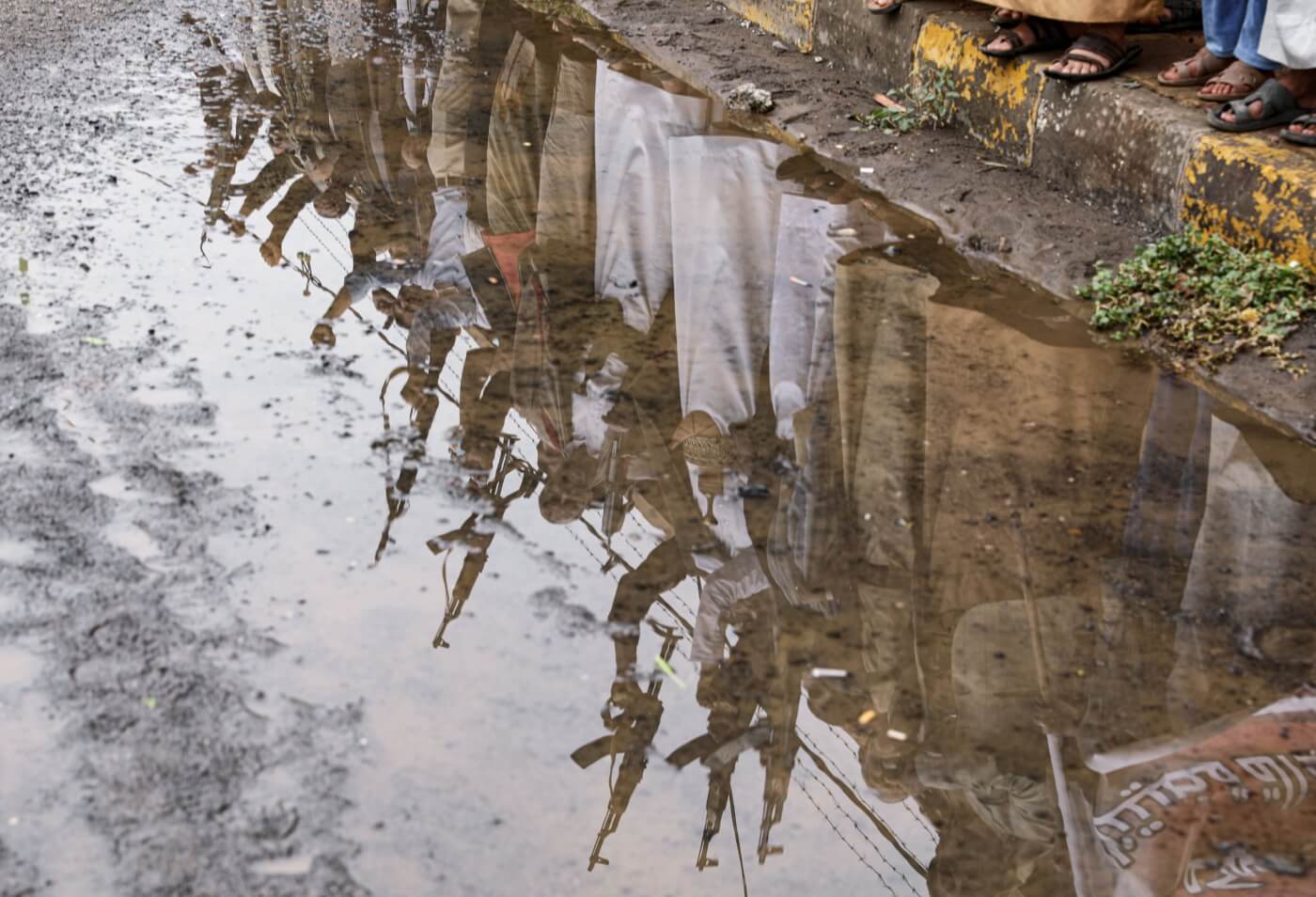Yemen’s Houthi-controlled parliament in Sana’a has begun the process of stripping 12 MPs of their parliamentarian immunity ahead of putting them on trial for supporting the group’s enemies. The move is just the latest example of the Iranian-backed Houthis’ clamping down on political opponents.
The Saba news agency reports that the parliament in Sana’a – which has been under Houthi control since the rebels captured Sana’a in 2014 and is now headed by Yahyaa Al-Rai – received a letter from the Minister of Justice in the Houthi government that included directives to lift the immunity of 12 parliamentarians. The dozen MPs listed are loyal to the internationally recognised government, with the move paving the way for their trial on charges of collaborating with the Saudi-led Arab coalition.
Saba adds that the Houthi parliament:
“approved the referral of the letter to the Committee for Constitutional and Legal Affairs for consideration and to report on it at a future session.”
The Yemeni Parliament, which has been relocated to Aden “until further notice”, has denounced the move in an official statement. The statement, released by the parliament speaker’s office has accused the Houthis of escalating violations against its members and condemned continued efforts to issue death sentences and arbitrary arrest warrants against citizens, journalists and parliamentarians.
Since seizing large parts of the country the Houthis have been engaged in a far reaching crackdown over Yemen’s political and civil society. In March, the International Observatory of Human Rights (IOHR) reported that a Specialised Criminal Court court controlled by the Iranian-backed Houthis sentenced 35 pro-government MPs, in their absence, to death and confiscated their properties.
Read IOHR’s article:
Iranian-backed Houthi court sentences 35 Yemeni MPs to death
For World Press Freedom Day 2020, as part of our #SaveYemeniJournalists campaign, IOHR released an in-depth special report on four journalists which face the death penalty at the hands of the Houthi rebels for the “crime” of being journalists.
Read IOHR’s special report:
The IOHR investigation was accompanied by an open letter calling on the leaders of the Houthi movement to pardon the four journalists: Abdul Khaleq Imran, Akram El Walidi, Harith Hamid and Tawfiq Al-Mansouri. The letter was signed by over 100 signatories including members of both houses of British parliament, award winning journalists and editors and members of the Yemeni political establishment.
On Monday 20 July, the EU Heads of Mission to Yemen called upon the Houthis to immediately release the four Yemeni journalists who were sentenced to death, urging warring factions in Yemen to stop the harassment of journalists.
In an official statement, they collective said:
“The EU Heads of Mission call on all parties to immediately release all detained journalists in Yemen, including Akram Al-Walidi, Abdelkhaleq Amran, Hareth Hamid and Tawfiq al-Mansouri who have been sentenced to death. The uncontrolled spread of Covid-19 makes their release all more urgent,”
At the same time as removing parliamentary immunity from the 12 MPs, the Houthis in Sana’a have stormed the properties of Yasser Al-Awadhi, a tribal and political leader who led a military uprising against their rule in the central province of Al-Bayda.
Local media report that armed men entered Al-Awadhi’s house and told its occupants to leave, then moved to his shops around the capital.
Al-Awadhi is a senior member of the General People’s Congress and a leader of Al-Awadh tribe. Last month he led a number of tribesmen against the Houthis after the rebel group refused to punish those responsible for the killing of a local woman.
The Houthis quashed the uprising and forced Al-Awadhi and the tribesmen to move into government-controlled areas in Al-Bayda.
The Houthi official media confirmed their raids, saying that their security services were:
“executing judiciary orders for confiscating properties of Yemeni political, military and tribal figures who opposed their rule and backed the internationally recognized government and the Arab coalition-led military operations in the country.”
The Houthis recent clampdown on dissent mirrors that of the Iranian regime that backs them.
Sadly, an end to the turmoil seems out of sight; a peace agreement signed between the government and the Houthis in late 2018 has largely failed to halt hostilities and both sides continue to commit atrocities to further their hold on a country in desperate need of a break.

